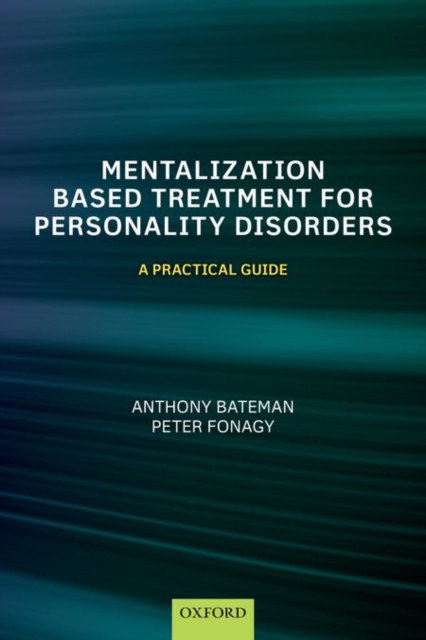Mentalizing in Clinical Practice
By: Jon G. Allen, Peter Fonagy and Anthony W. Bateman (2008).
One of the earliest but still best and most important mentalization books. The book reviews the concept of mentalization and how the concept of mentalization and the associated treatment method can be applied in practice. The book provides a well-founded theoretical approach to understanding attachment trauma and borderline personality disorder. It also describes how to work with mentalization in relation to a range of client groups, parents, children, teenagers, etc.
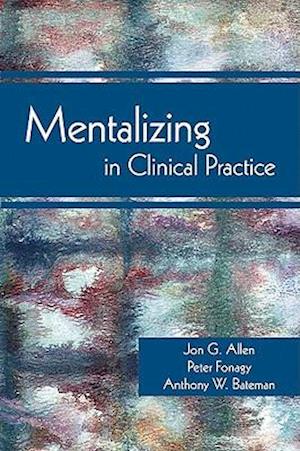
Mentalizing in Psychotherapy
By: Carla Sharp and Dickon Bevington (2022)
This book is written by Carla Sharp and Dickon Brevington, two of the foremost clinicians and theorists in the field of mentalization theory. The book represents their best attempt at a review of how to work with mentalization in psychotherapy. In the introduction, the authors state that their goal is to create an accessible book on mentalization-based therapy, with a constant focus on the importance of maintaining a “mentalizing attitude”. They have certainly succeeded in this. The book provides an overview of mentalization theory and contains both new material and a lot of basic theory that is formulated in an easy-to-understand way and can be applied directly to clinical practice. The book includes sections on developing mentalization skills and starting therapy, including the use of case formulations. There are also chapters on the basic intervention models in mentalization-based therapy and the structure of MBT. The book also offers some really wise thoughts on the importance of supervision. This is a really good book that manages to capture the most important aspect of mentalization: maintaining human humility and respect for the individual client. This shines through on every page of the book, from start to finish. The book is easy to read and truly applicable.
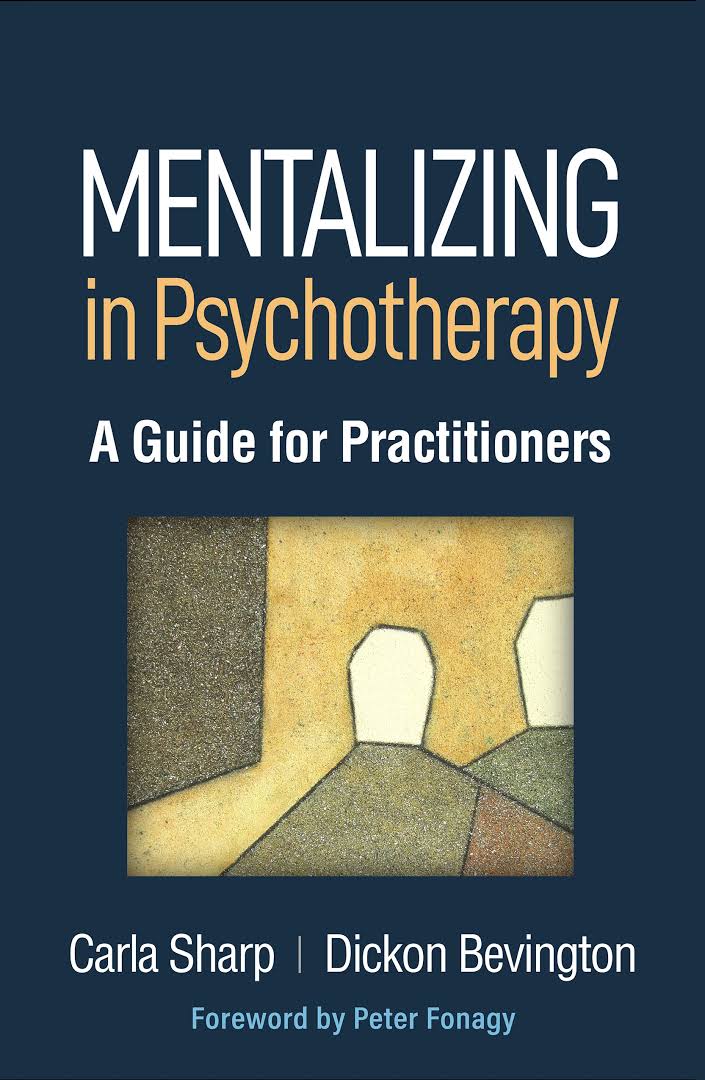
Mentalization with Neglected and Traumatized Children
By: Janne Oestergaard Hagelquist (2023)
This book shows how one can have productive and mentalizing interactions with neglected and traumatized children and adolescents, as well as how to apply the more current knowledge about mentalization and trauma in the treatment of these children.
Who should read this book? If you’re a psychoanalyst, psychotherapist, social worker, pedagogue, teacher, foster carer, or simply someone passionate about mentalization, trauma, and child development, this book is a must-read for you
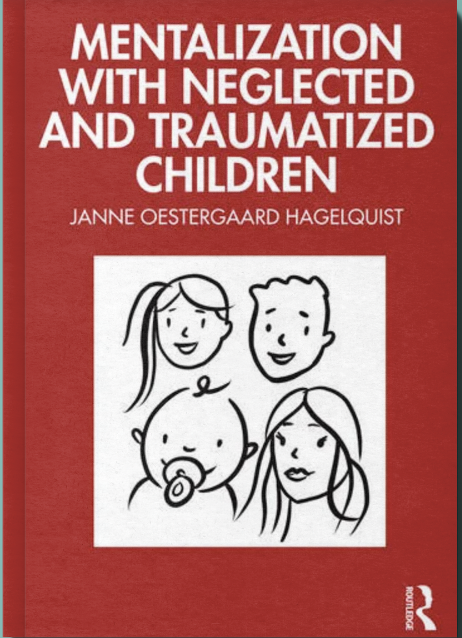
Mentalization-Based Treatment for Adolescents
This book focuses on Mentalization-Based Treatment (MBT) for adolescents. The book provides an overview of the development of adolescence and MBT’s methods for individual, family and group treatment.
The book also includes a great chapter on supervision and its importance in working with young people and their families. This chapter highlights the importance of reflection and support for professionals working with vulnerable groups.
Overall, this book provides useful insights into the use of MBT with adolescents and their families, while emphasizing the importance of respect, recognition and professional support when working with this group
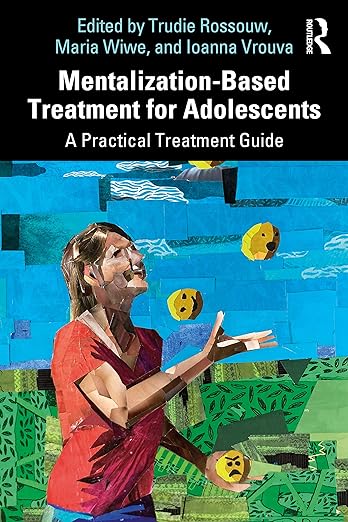
Enhancing Attachment and Reflective Parenting in Clinical Practice - A Minding the Baby Approach
The book draws attention to the importance of professionals taking care of their own safety and reflective capacity. It contains concrete examples of dilemmas and challenges that all clinicians will recognize and find inspiration from. Each chapter concludes with questions that can be used as practical tools in working with vulnerable families. The final chapters include a review of specific families’ experiences in the minding the baby program.
The authors write with tremendous respect, understanding, and care for the most vulnerable in society, always focusing on the safety and self-worth of both parents and children
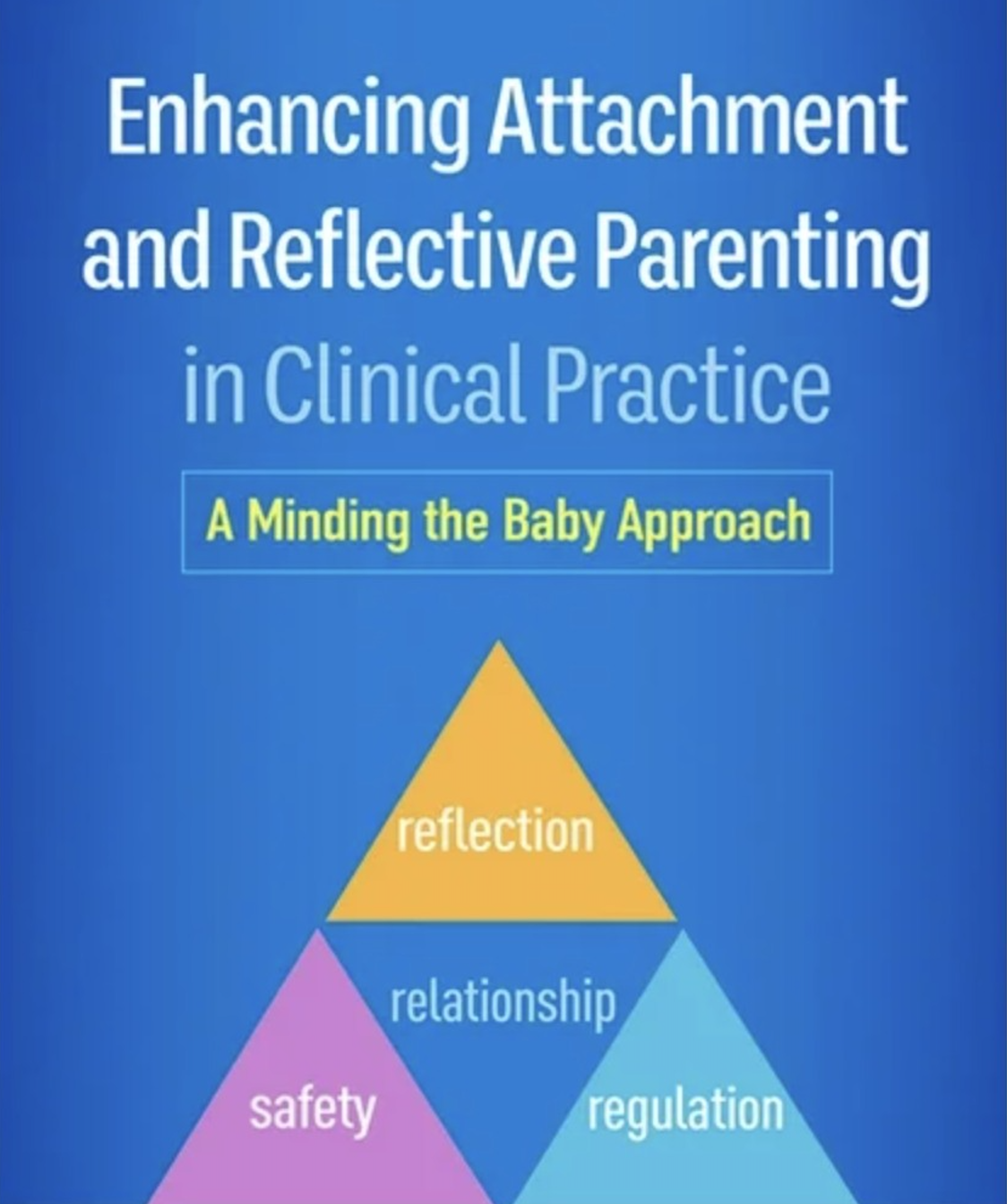
Therapeutic Work for Children with Complex Trauma - A Three-Track Pyschodynamic Approach
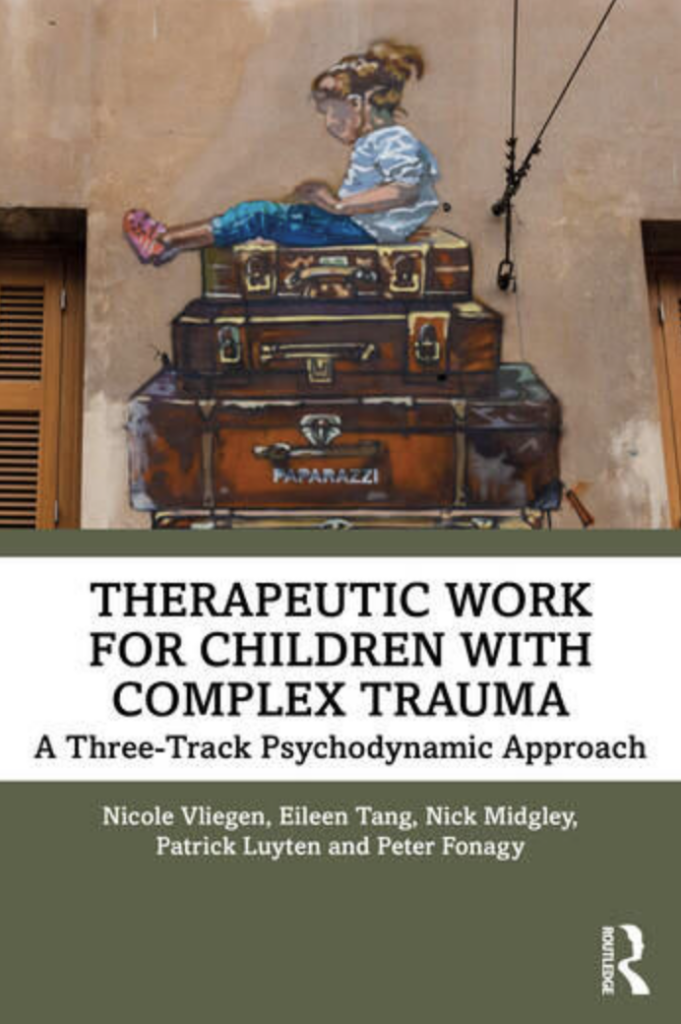
A mentalization-based approach to healing children exposed to adverse experiences: Tools for residential care
By: Janne Oestergaard Hagelquist, Camilla Hamre Jensen and Heino Rasmussen (2023)
The article explains how to implement mentalization based theory in working with children and adolescents placed in day care institutions. The information contained in the article therefore serves as a tool to use when creating secure relationships with children who have suffered or are currently experiencing developmental trauma.This article offers practical models and tools as well as considerations on implementation that are beneficial and easy to apply, demonstrated through cases. The STORM model and “Obtaining Skills” screening tool may be helpful models for professionals addressing mentalization in children while working in challenging environments such as with traumatized and neglected children.
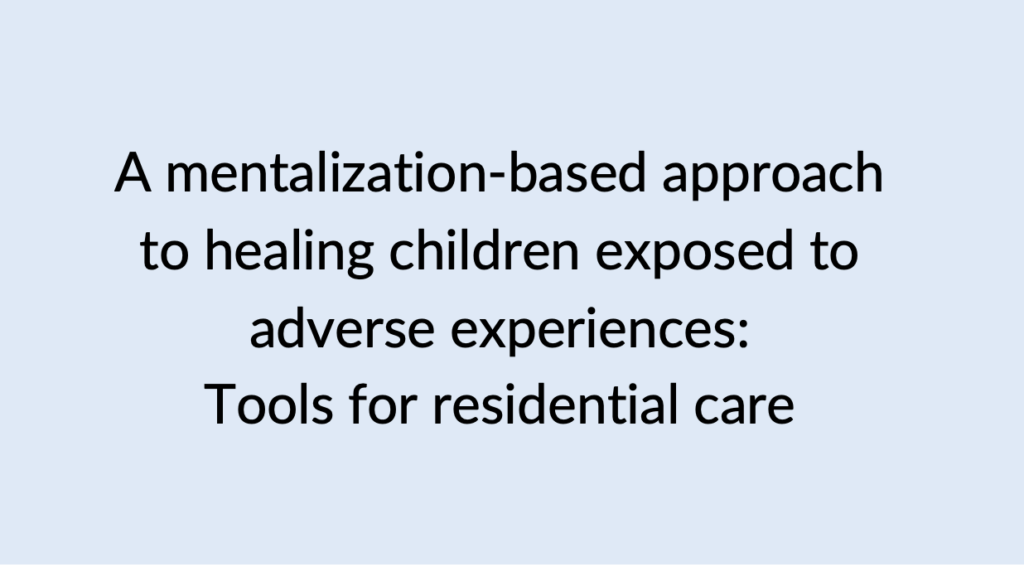
Mentalization in the Family
By: Hagelquist, J.Ø. and Rasmussen, H (2017). Mentalization in the Family. Taylor and Francis.
Mentalization in the Family draws upon the latest research on child development, parenting, and mentalization theory to provide a comprehensive guidebook for parents, teachers, social workers, and any professional working with families today.
The book explores key ideas central to mentalization – such as attachment style, internal regulation, emotional compass and parental navigation – But also offers practical guidance around issues such as play, siblings, boundaries and sexuality.Accessibly written throughout and featuring pedagogical tools that bring the theory into life, this wide-ranging books will be essential reading for a range of professionals, from those working with foster families to teachers working with troubled or disruptive children. It also offers a way for parents to better understand themselves, their own parenting style, and the dynamics which make up family life.
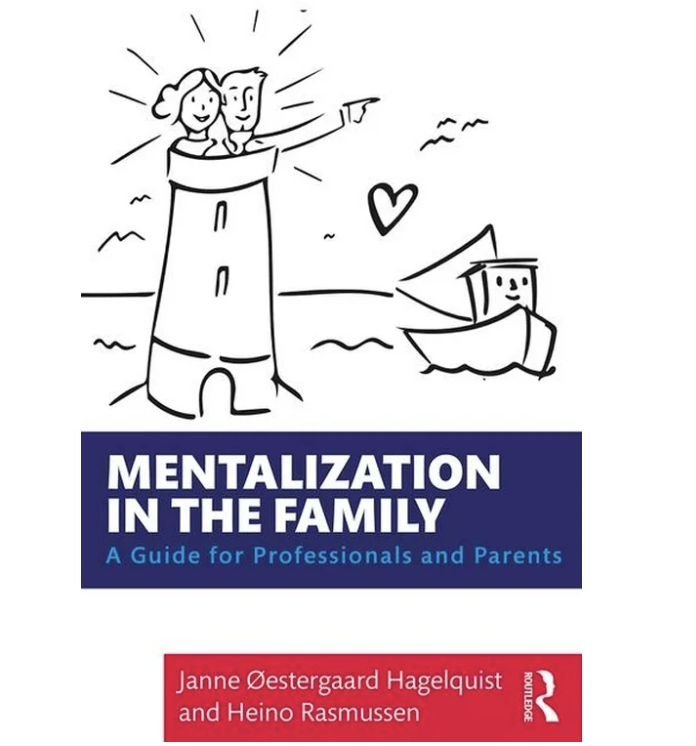
The Mentalization Guidebook
Hagelquist, J.Ø. (2015). The Mentalization Guidebook. Karnac Books.
The Mentalization Guidebook is a tool for professionals working with traumatised and neglected people who want to use mentalization in their work. The intention of the book is to show the best concepts, psychoeducation and tools of mentalization and trauma psychology. The purpose is to share those models and tools, along with the best tips and tricks that can be used in the daily practice working with mentalizing.The Guidebook communicates the mentalization subject in a way that is easy to follow and accessible to non-professionals and professionals alike. The illustrations help reduce the abstract content and perhaps excessive intellectualisation that can characterise the field on this subject to something that through the medium of visual presentation becomes immediately obvious and concrete for the professional and non-professional user.
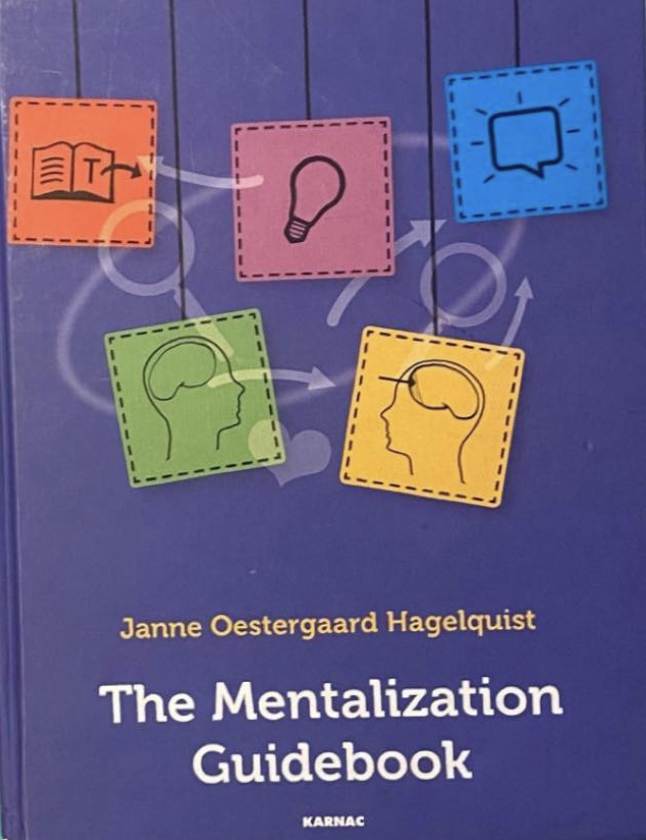
Trusting in Psychotheraphy,
By: J. Allen, 2021
In this fine and intelligent book J. Allen unfolds the concept of trust and from different professional angles he examines the significance that trust has in psychotherapy. In a way, it is a noticeable void that he is thereby trying to fill. Because although anyone who has given or received psychotherapy knows how fundamental trust is in that kind of treatment, surprisingly little has been written about the phenomenon. When we deal with trust either as therapists or researchers in the field, we tend to do so solely with a focus on understanding or working with clients’ problems with trust, which particularly is a theme for people who have experienced failure and trauma in attachment relations. Instead, Allen shifts his focus to the credibility of therapists and sees trust as an essentially reciprocal, relational process: showing trust requires that there is a trustworthy other to show it to if trust is to make sense and especially create healing.
So, what is it that makes psychotherapy a credible, effective treatment? In the first chapter of the book, Allen summarizes decades of research on this issue – research that indicates that individual differences between therapists have a greater impact on the outcome of therapy than specific therapeutic methods. On this basis, he concludes that there is not only a need for a change of focus in the way we deal with trust in psychotherapy, but also a need for a change of balance in relation to the way we educate and develop the subject – namely the process from development of methods to development of credible therapists.
This conclusion sets the stage for the book’s remaining three chapters, in which Allen examines trust and the development of trust and distrust from both developmental psychological, philosophical, and therapeutic angles. The book is kept in easy-to-understand language without losing sight of the complexity and deeper nuances of the themes. Each chapter concludes with a summary of the chapter’s most important points, as well as concrete implications for therapeutic practice and thus becomes both readable and practically applicable to everyone in the field of treatment or with an interest in it. Perhaps the most important book written in the field for many years.

Mentalization Based Treatment with families
By Peter Fonagy og Eia Asen.
This book is state of the art in relation to mentalization based family therapy. In the first part of the book, the mentalization theory is reviewed in relation to working with families. After a review of the concepts in the first chapters, chapter five is perhaps the book’s best chapter. A lot of ideas and games for mentalization-based interventions with families is reviewed in this chapter. In the other chapters of the book there is a focus on social media and challenges with screen time in families. Furthermore the chapters focus how to work with mentalization in relation to families who come from a different cultures. The book is filled with cases and recognizable dilemmas. When you know Eia Asen you can imagine how he performs the interventions and it may be a challenge that Eia can do something very special with her humor and mentalizing nature which may be difficult to do in the same way. The theme chapters alternate between very theoretical reflections and completely low-practice interventions, which very well reflects the two authors who complement each other but also work with the mentalization theory from different angles. All in all, an interesting book for those who work with families or are preoccupied with the development of the field of mentalization.
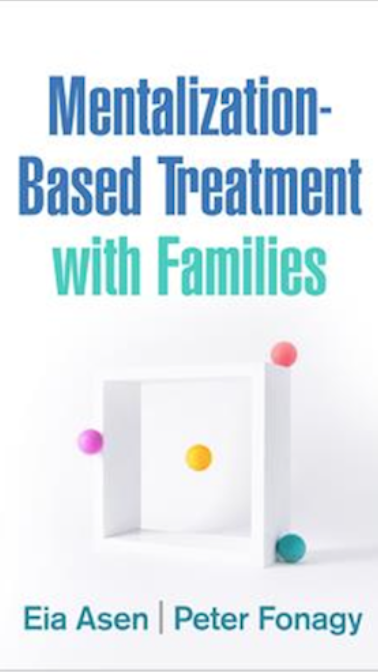
“Handbook of Mentalizing in Mental Health Practice” – Second edition
By Anthony W. Bateman og Peter Fonagy
“Handbook of Mentalizing in Mental Health Practice” first published in 2012, has been reworked into a new and improved 2. edition with an update on the Mentalization Theory. The book is divided into; Principles (basic theory), Clinical practice (groups, youth, couples etc.) and specific applications (Diagnosis). As an indication of the development of the Mentalization theory a number of experts have contributed with new chapters on specialized approaches and more diagnoses. Key concepts such as P-factor and Epistemic trust are described in depth. All chapters are well written and a specific add-on is the good examples and cases.
“Handbook of Mentalizing in Mental Health Practice” is maybe the most important book for professionals with an interest for and a desire to learn more about the implementation of the Mentalization theory.
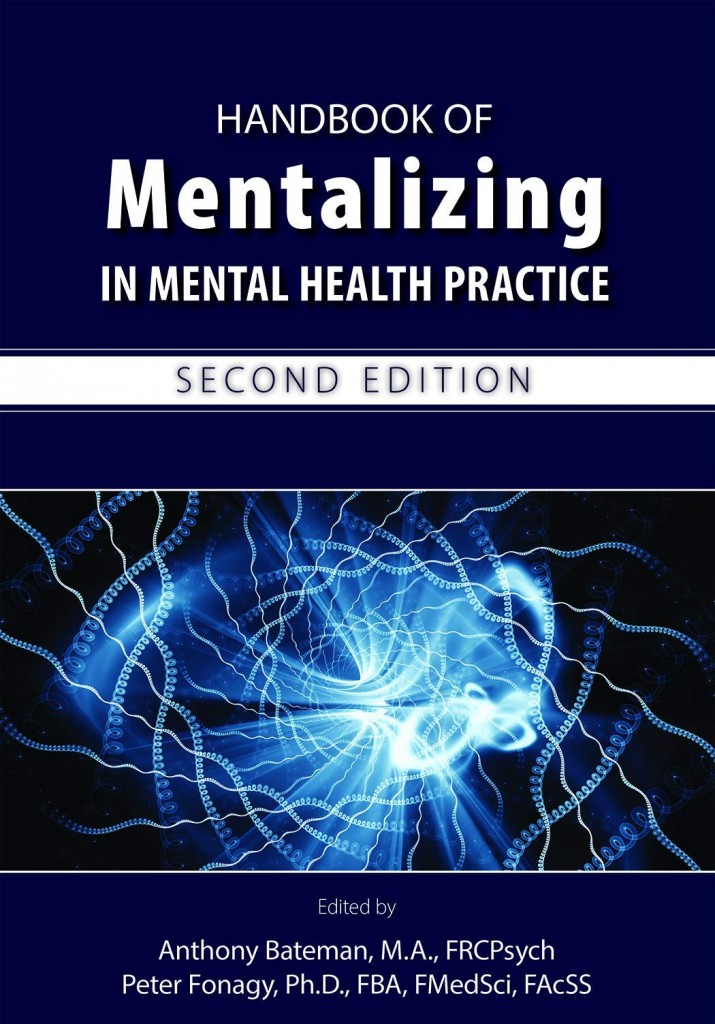
“Reflective Parenting: A guide to understanding what’s going on in your child’s mind.”
By Alistar Cooper and Sheila Redfern
Alistar Cooper and Sheila Redfern are the authors of this wonderful book about raising children in a mentalizing manner. The psychological theory is written in an easygoing way, which makes this book easy to understand and a pleasure to read. The main theme concerns why Mentalization and Reflective Functioning is momentous to the development of secure, socially well-balanced and mentalizing children. The book emphasizes how being able to look at oneself as a parent is essential for good parenting skills. Good parenting skills relates to the ability to reflect on your own feelings and balance these feelings in a reflective interaction with the child.
The authors stress the importance of having a family culture where parents act as role models in managing conflicts. A central point is, that conflicts are a natural phenomenon in a parent-child relation and conflicts can be helpful if parents are able to re-connect and maintain a secure relation in the situation so the child feels loved and respected.
The book also focuses on the mentalizing work with sensitive children, who in this context are neglected and traumatized children, or children with Asperger’s syndrome. This is an interesting perspective, and the book is generally characterized by the use of many everyday examples, which makes the book both relevant and meaningful to the reader.
Finally the book addresses relations within family, between siblings, friends and how to mentalize all the positive and stimulating moments in the parent-child interactions.
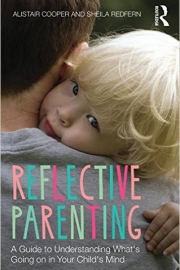
Zero Degrees of Empathy
By: Simon Baron Cohen.
In this book Baron Cohen is interested in what causes people to treat other people as objects. The author begins with a moving explanation of his interest in what causes people to treat others as objects. He is Jewish himself and as a child was told stories about what the Nazis did to the Jews during World War II. These stories created horror but also wonder in the little boy’s mind. One of his points is that this horrific behavior cannot be explained as evil, but rather as an absence of empathy. This led him to investigate the field of empathy and his theory of mind blindness is part of the genesis of the entire field of mentalization.
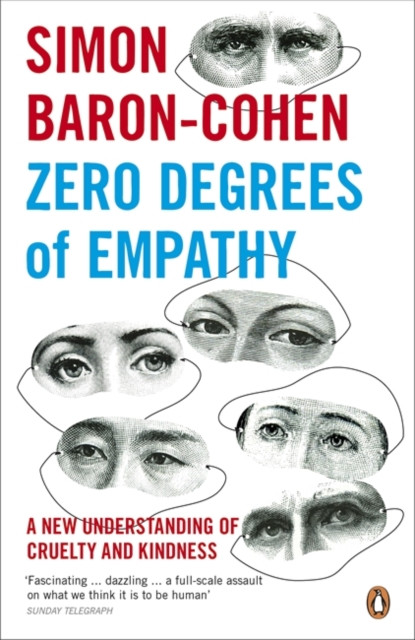
Mentalization-based Treatment For Children: A Time-Limited Approach
By:Midgley N., Ensink K., Lindqvist K., Malberg N., Muller N.(2017).
An excellent book on mentalization-based treatment of children. The book is packed with great chapters for professionals who work with children and families in a mentalization-based way. The first chapters consist of a clear overview of the concept of mentalization and the development of mentalization in the context of children and families. This is followed by the authors’ description of their model for time-limited mentalization-based therapy for children (MBT-C). They describe how to work with the “setting”, assess the family’s mentalizing ability and use the assessment to structure the treatment. This is followed by excellent chapters on therapy with children – including mentalization-based play therapy. The end of the book illustrates how to work with parents and families in a mentalization-based way, and there is a chapter on ending the process. The book is filled with cases that are illustrative, but it is also characterized by a respectful and caring approach to neglected and traumatized children.
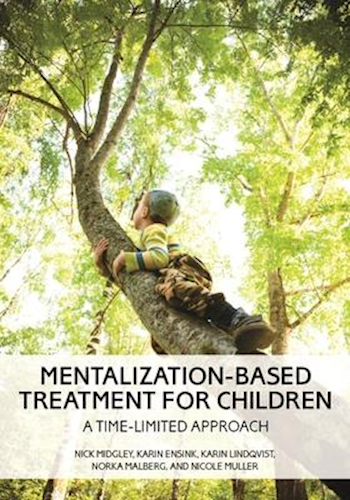
Affect Regulation, Mentalization and the Development of the Self Affect Regulation, Mentalization and the Development of the Self
By: Fonagy, P.F., Gergely, G., Jurist, E., & Target, M. (2007).
In this book, the theoretical basis for the development of the ability to mentalize and the associated treatment is thoroughly reviewed. If you read the book from cover to cover, you will find yourself invited into a theoretical universe that challenges and offers meaning across well-known theorists within psychoanalysis and attachment theory, among others. The book not only contains theory, there are also some interesting cases that are analyzed based on the theory.

Minding The Child. Mentalization-Based With Children, Young People and Their Families
By: Midgley, N. & Vrouva, I. (2012).
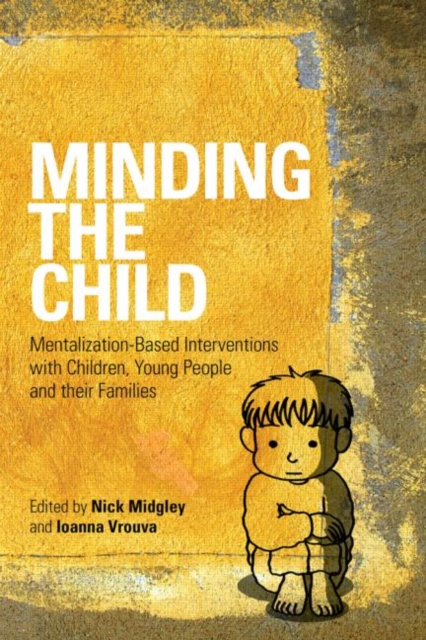
The Handbook Of Mentalization-Based Treatment
By: Allen J., Fonagy P. (2006)
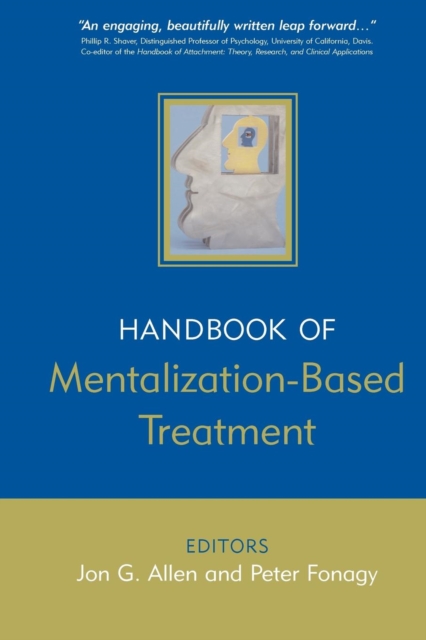
Mentalization-Based Treatment For Personality Disorders - A Practical Guide
By: Bateman A., Fonagy P. (2016).
